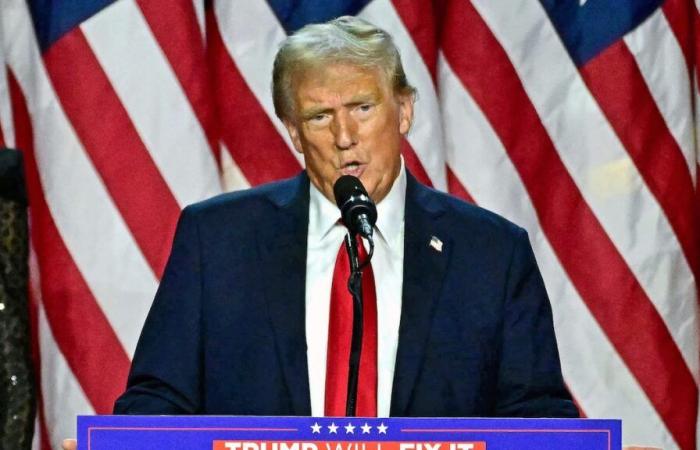US President-elect Donald Trump on Sunday asked senators to exempt him from their approval, in principle obligatory, to appoint the highest officials of his future administration.
• Also read: Trump spoke with Putin and warned him against escalation in Ukraine
• Also read: “Consequences on human lives” to be expected if RFK Jr. occupies a position in public health, says a neurologist
An article of the American Constitution allows the president to make appointments without their approval by the Senate when the latter is not in session.
But this provision is rarely activated, as senators usually arrange to sit at the time of nominations and thus exercise their power of control over the executive.
The Republican Party has regained the majority in the Senate, which will meet in January to take the oath of office, but elected Democrats could still slow down the process of approving nominations.
“Sometimes votes can take two years or more. This is what they (the Democrats) did four years ago and we cannot let it happen again,” the president-elect protested on Sunday on X, referring to his first term (2017- 2021).
“Any Republican senator aiming to take the coveted leadership position in the United States Senate must accept nominations” outside of parliamentary sessions, he added.
The three senators campaigning for this position reacted by supporting Donald Trump’s request.
“100% agree. I will do anything to ensure that your nominations (are approved) as quickly as possible,” wrote Rick Scott, senator-elect in Florida, supported by billionaires Vivek Ramaswamy and Elon Musk and other allies of Donald Trump to oversee the party representatives in the Senate.
“We must act quickly and decisively to ensure that the president’s appointees are approved and all options are on the table, including appointing during a legislative recess,” said South Dakota Rep. John Thune , current number two Republican in the Senate.
“It is unacceptable for Democratic senators to block” the nominations, said John Cornyn of Texas. “If they do, we will stay in session even on weekends until they relent. And the Constitution gives the president the power to make appointments during recess,” he added.
The US Senate examines and confirms by a vote, first in committee, then in plenary session, the appointments of ministers, their deputies, but also ambassadors, military officials, directors of multiple federal agencies and judges, notably those of the Supreme Court.
“No judge must be approved” before the Republicans have chosen their leader and taken office in the Senate, Donald Trump added on Sunday.






